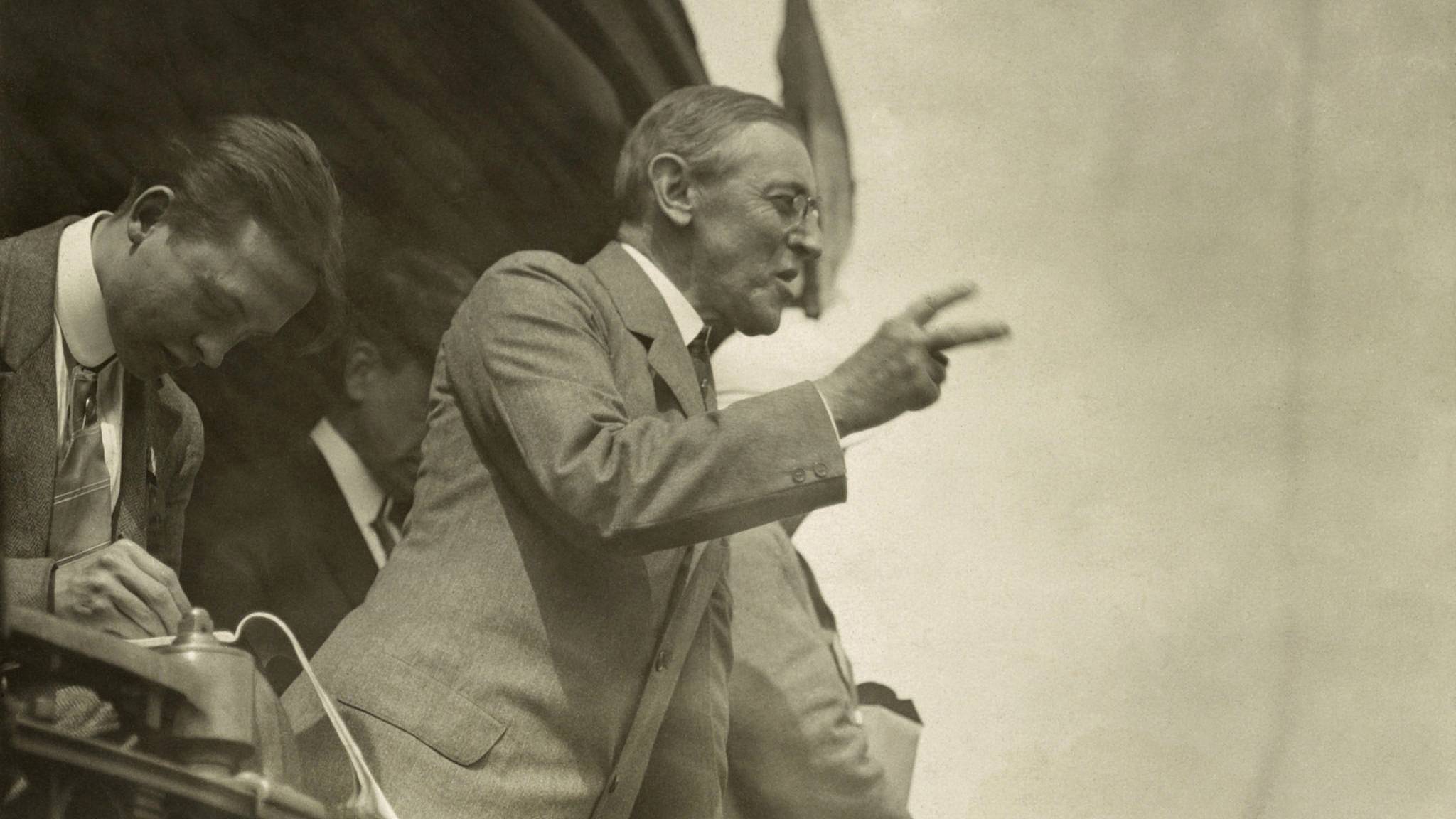EDITOR – ‘Oh! I thought Israel had always been there.’ was the honest reaction of a man in his late 50s on learning that it had actually been created in 1948. However, if truth be told, at the time Gaza was filling large amounts of news time, the average grasp of the facts of the matter may prove to have been tragically inadequate.
It may come as a surprise to many that America’s involvement in the First World War did not commence until December 1917, having been neutral since 1914, and it was Democrat Woodrow Wilson who eventually convinced his country to join in. He was also a key figure in advocating a League of Nations with the intention of preventing further hostilities starting. With the Second World War erupting some two decades later, its aims fell terribly short.
 Woodrow Wilson changed the mindset towards the First World War in the US. (Photo: Shutterstock)
Woodrow Wilson changed the mindset towards the First World War in the US. (Photo: Shutterstock)
President Wilson didn’t find it easy convincing his fellow countrymen that their place was alongside their European allies so, to present his policy for doing so, he compiled a set of ‘14 Points’. These were wholly for domestic uptake initially but their wordings proved suitable as a draft for the terms of the eventual surrender document when hostilities came to an end in 1918.
Opposing the Allies were two ‘Empires’, namely the Austro-Hungarian and Ottoman forces with the lands they controlled, and Point 12 of Wilson’s list read that:
‘Turkey to be assured a secure sovereignty, but the other nationalities that are now under Ottoman rule should be assured an undoubted security of life and an absolutely unmolested opportunity of autonomous development’.
This latter clause would include the territory we now refer to as the Middle East and prompted British Foreign Minister Balfour’s letter to Lord Rothschild of November 1917 thus affording Palestine a right to that ‘autonomous development’.
A 1935 atlas depicts Palestine in its pre-Ottoman days, with no part of it usurped by another power, and this remained so until 1948. Balfour’s conditional offer of a Jewish homeland had apparently not been taken up after 30 years, nor do we find history recording an agreement being reached between Palestine and David Ben Gurion’s Zionists. The casual onlooker is therefore left in a vacuum, wondering whether Israel is based on 1917 legality, or whether Palestinian indignation at 75 years of illegal oppression is indeed merited, notwithstanding the drastic measures used to express it? Tread wisely in forming your opinions?
Nick Turner,
Drimoleague.
Ryan’s legacy will not be good for farmers
EDITOR – Now that Eamon Ryan has eventually got on his bike with his An Taisce friends, it is time to reflect on his legacy – used bicycle lanes cutting through farmland; a policy hell-bent on destroying farming as we know it; a farming community over-regulated and demoralised; a repeat of what happened to the sugar beet industry; a rural family that cannot build a rural house for their daughters and sons; being forced to move to the metropolis; a biodiversity policy that bemoans the near-extinction of the grey wolf in Europe and the black rat in Ireland.
Michael Hallissey,
Mayfield, Bandon.
We should remember we are all sinners
EDITOR – The public discourse following the recent RTÉ programme on Bishop Eamonn Casey, is regrettably lacking in mercy.
It is quite astonishing how many, describing themselves as catholics are willing to launch into a tirade about him without any mention of forgiveness, the very essence of the gospels and our most basic prayers: ‘Forgive us our trespasses as we forgive …’ and ‘I detest my sins above every other evil …’
Pointing the finger at someone is not the way of Jesus. He told us, ’Do not judge’. Doing so only gets us embroiled in a Pharisaic ‘holier-than-thou’ mentality of condemnation. The New Testament commands us to forgive; to work and pray with Jesus to see good come out of every wrong. Life devoid of forgiveness is a life not worthy of man.
Television made Bishop Eamonn Casey into a celebrity, a cleric that was ‘modern’, ‘open’ ‘with it’ and then spectacularly he was pulled down from this pedestal, amid much gloating over the scandal uncovered.
Each of us must ask ourselves: How long shall we cling to our outrage and our identity as victims, and its associated unhappiness? Only God’s mercy can unburden us and set us free.
As Catholics, apart from offering our condolences to family and friends, our principal reasons for attending funerals are to pray for forgiveness for the deceased, to deal with unresolved matters, to rejoice in what God succeeded in doing through them (in spite of them), and possibly ask their intercession.
Even for those publicly judged as awful sinners, our hope is that, ‘Between the stirrup and the ground, mercy can be sought and mercy found.’ After all, what is important is not where, with whom, or how we are laid to rest, but where we spend Eternity!
Gearóid Duffy,
Lee Road,
Cork.
Is it time to call time on Irish greyhound racing?
EDITOR –Connecticut has become the 43rd US state to ban greyhound racing. Only a handful of countries still allow the practice.
An RTE Primetime Investigates programme four years ago laid bare the extent of welfare problems on the Irish track racing scene … widespread doping, the disappearance of greyhounds every year, and the abandonment of dogs. There’s a high incidence of injury on Irish tracks. And once a greyhound has reached the end of its racing career, or its performance is deemed to render it unviable for the track, it has no future unless someone wishes to adopt it as a pet.
Let’s not wait for the few other remaining outliers to axe this so-called sport. We can show leadership as a nation by consigning our greyhound industry to the scrapheap.
John Fitzgerald,
Callan, Co. Kilkenny.










